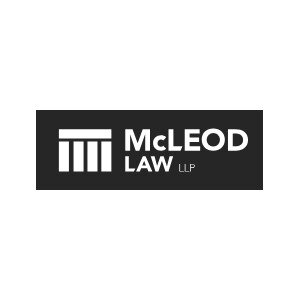Best ADR Mediation & Arbitration Lawyers in Calgary
Share your needs with us, get contacted by law firms.
Free. Takes 2 min.
List of the best lawyers in Calgary, Canada
About ADR Mediation & Arbitration Law in Calgary, Canada
ADR Mediation & Arbitration refers to Alternative Dispute Resolution, a range of methods for settling disputes outside the more traditional court system. In Calgary, Canada, these methods largely include Mediation and Arbitration. They offer a more flexible and often less expensive alternative to litigation, particularly suitable for complex disputes that are best resolved in a non-adversarial manner. In mediation, a neutral third party helps the disputing parties find a mutually acceptable solution. In contrast, an arbitrator operates much like a judge, hearing arguments and evidence from both sides before making a decision, which can be either binding or non-binding.
Why You May Need a Lawyer
Engaging a lawyer in ADR situations can be crucial for a number of reasons. Complex commercial disputes, family law matters, labor and employment disputes, personal injury cases, and disagreements concerning construction, real estate, or intellectual property can all benefit from legal representation. A lawyer can provide essential guidance, negotiate on your behalf, present arguments and evidence in your favour, and see that your rights are fully protected throughout the entire process.
Local Laws Overview
The Arbitration Act of Alberta provides the legal framework for arbitration in Calgary. It includes provisions regarding the arbitrator's powers, the conduct of arbitration proceedings, and the enforcement of arbitral awards. The Mediation Services Information Act in Alberta requires that parties in a dispute are aware of mediation services available to them. Lawyers can crucially aid in understanding these laws and their implications, ensuring clients adhere with local laws throughout the ADR process.
Frequently Asked Questions
When should I choose mediation over arbitration or vice versa?
Typically, parties opt for mediation when they wish to maintain control over the outcome, and value maintaining relationships. If the parties seek a legally binding decision and their relationship is not a significant factor, arbitration may be preferred.
Are arbitral decisions legally binding?
Yes, decisions from arbitral proceedings are legally binding and can be enforced through the courts, depending on the arbitration agreement signed by both parties.
Can I be compelled to attend mediation or arbitration?
In most situations, participation in ADR methods like mediation or arbitration is voluntary. However, a court or a contract clause can compel you to participate in ADR proceedings.
What if the other party does not comply with the resolution agreed upon in mediation?
If mediation yields an agreement, it can be made into a legally binding contract. If the other party does not uphold their end, they can be taken to court to enforce the agreement.
How do I select a mediator or arbitrator?
The choice of a mediator or arbitrator can have a significant effect on the outcome of the process. They can be chosen based on their expertise in the subject matter of the dispute, their reputation, or your personal comfort level with them.
Additional Resources
The Alberta Arbitration and Mediation Society and the ADR Institute of Alberta provide information and resources about ADR in Calgary. The Law Society of Alberta can also assist in locating an experienced lawyer in ADR law.
Next Steps
If you feel you need legal advice or representation in mediation or arbitration proceedings, the first step is to consult with an experienced ADR lawyer, who can provide knowledgeable advice and effective representation. Be prepared to provide all important documents and details related to your dispute, and to discuss your objectives and concerns. Your lawyer can then guide you through the process and help you make informed decisions every step of the way.
Lawzana helps you find the best lawyers and law firms in Calgary through a curated and pre-screened list of qualified legal professionals. Our platform offers rankings and detailed profiles of attorneys and law firms, allowing you to compare based on practice areas, including ADR Mediation & Arbitration , experience, and client feedback.
Each profile includes a description of the firm's areas of practice, client reviews, team members and partners, year of establishment, spoken languages, office locations, contact information, social media presence, and any published articles or resources. Most firms on our platform speak English and are experienced in both local and international legal matters.
Get a quote from top-rated law firms in Calgary, Canada — quickly, securely, and without unnecessary hassle.
Disclaimer:
The information provided on this page is for general informational purposes only and does not constitute legal advice. While we strive to ensure the accuracy and relevance of the content, legal information may change over time, and interpretations of the law can vary. You should always consult with a qualified legal professional for advice specific to your situation.
We disclaim all liability for actions taken or not taken based on the content of this page. If you believe any information is incorrect or outdated, please contact us, and we will review and update it where appropriate.















